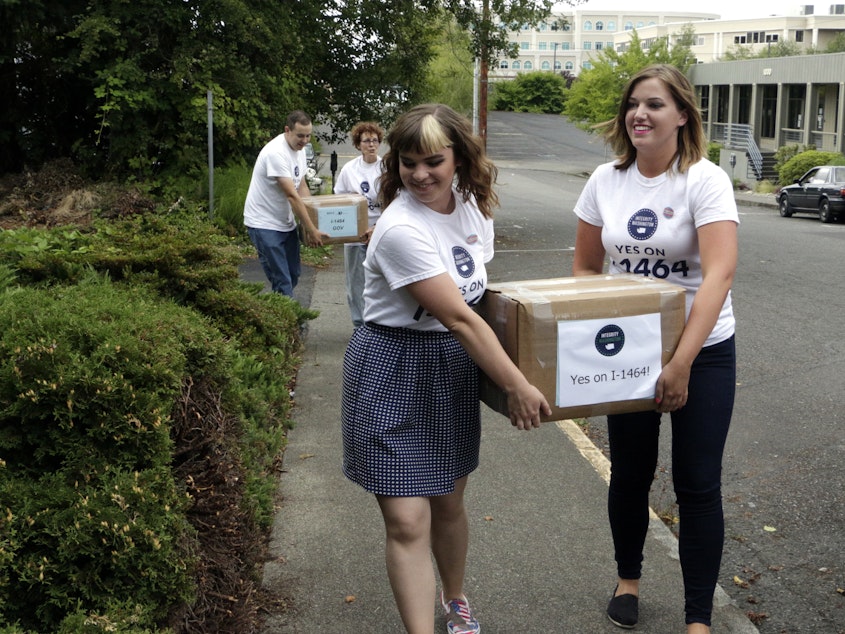Getting on the ballot still requires human touch for Washington state initiatives

Social isolation is a problem for people trying to get initiatives on the November ballot: They still have to gather real-world signatures without catching or spreading the coronavirus. So they're getting creative.
One measure seeking signatures right now is the proposed Seattle business tax to build affordable housing. The Seattle City Council has put discussion of the tax on hold during the coronavirus emergency. But proponents of the “Tax Amazon” initiative are trying to bring it before voters in the fall.
Supporters delivered petitions to people’s homes this weekend, and nicknamed their delivery service “Amazon Tax Prime.”
Eva Metz, spokesperson for "Tax Amazon," said the deliveries will help save on postage for the campaign.
“We will be mailing or delivering petitions to everyone who has signed the online petition as well as people who request it,” she said.
Metz said they mounted the online petition in hopes that city officials would accept it under the pandemic circumstances. But since that hasn’t happened, they’ll urge signers to submit paper petitions they’ve signed at home.
Sponsored
“Given that the political establishment has so far refused to make it any easier to collect signatures during the pandemic,” she said, “we are ramping up print signature collection, which will include asking everyone who signed online to sign in print, as there is no guarantee those online signatures will be accepted.”
Meanwhile the group Treatment First WA is collecting signatures for I-1715, a statewide measure to decriminalize low-level drug possession and increase the amount of marijuana tax proceeds that go to addiction treatment.
Chris Stearns, an Auburn city councilmember, is on the steering committee for the initiative.
“As a Native American, the impact of the War on Drugs has been totally disproportionate to our population,” he said.
Stearns said a coalition has worked on this measure over the past year. “What we’re trying to do is shift the focus from the criminal justice system to mental health and social services,” he said.
Sponsored
He said laws against selling or manufacturing illegal drugs would remain the same. A group with a similar proposal in Oregon is gathering signatures there. Currently no state has decriminalized drug possession for personal use.
Stearns said they’re currently asking supporters to print out and submit signed petitions.
Ben Stuckart, the former president of the Spokane City Council, is another supporter of I-1715. “We’re doing everything we possibly can right now” to get on the ballot, Stuckart said.
Stuckart said the campaign will hire paid signature gatherers as counties reopen. “Under phase two [of coronavirus re-opening], collecting in person will be allowed with social distancing. So we’ll be pursuing that as well,” he said.
The ACLU of Washington has contributed nearly $96,000 to the I-1715 campaign according to the state’s Public Disclosure Commission. They are the only contributor so far, and there is no campaign opposing the effort.




